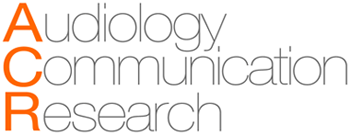Purpose
: To study the components of long latency auditory evoked potentials and to compare data from these measures in students with and without learning disabilities.
Methods
: Thirty students, 15 with learning disorder (study group) and 15 typical without learning problems (control group), of both genders, aged 7-14 years, mean age 10 years. They underwent clinical assessment in a clinic belonging to a public university in the state of São Paulo. Following, audiological assessment was performed to determine normal peripheral auditory system and electrophysiological assessment by examining the long latency auditory evoked response.
Results
: The results showed that there are functional differences between the groups. Increased latency components of long latency auditory evoked potential was observed in the study group compared to the control group. Longer latency values of these components were observed in the left ear when stimulated in the study group.
Conclusion
: This study contributed to better understanding of the auditory pathway functioning in children with learning disorders and can be a reference for other clinical and experimental studies and thus improve the definition of diagnostic criteria in this population.
AUDITORY EVOKED POTENTIALS; AUDITORY PERCEPTION; HEARING; ELECTROPHYSIOLOGY; LEARNING
